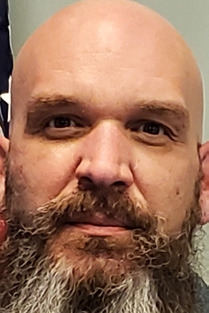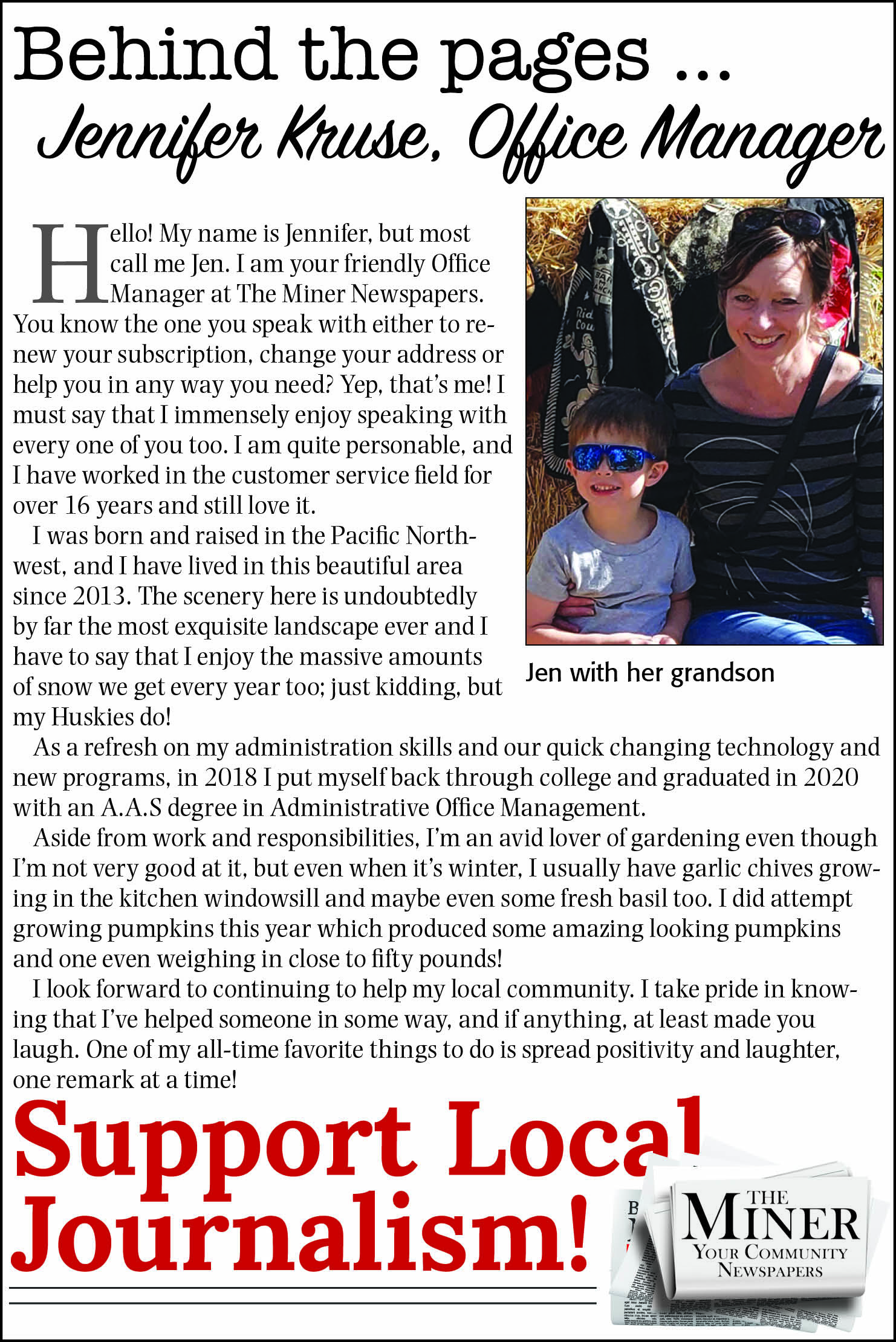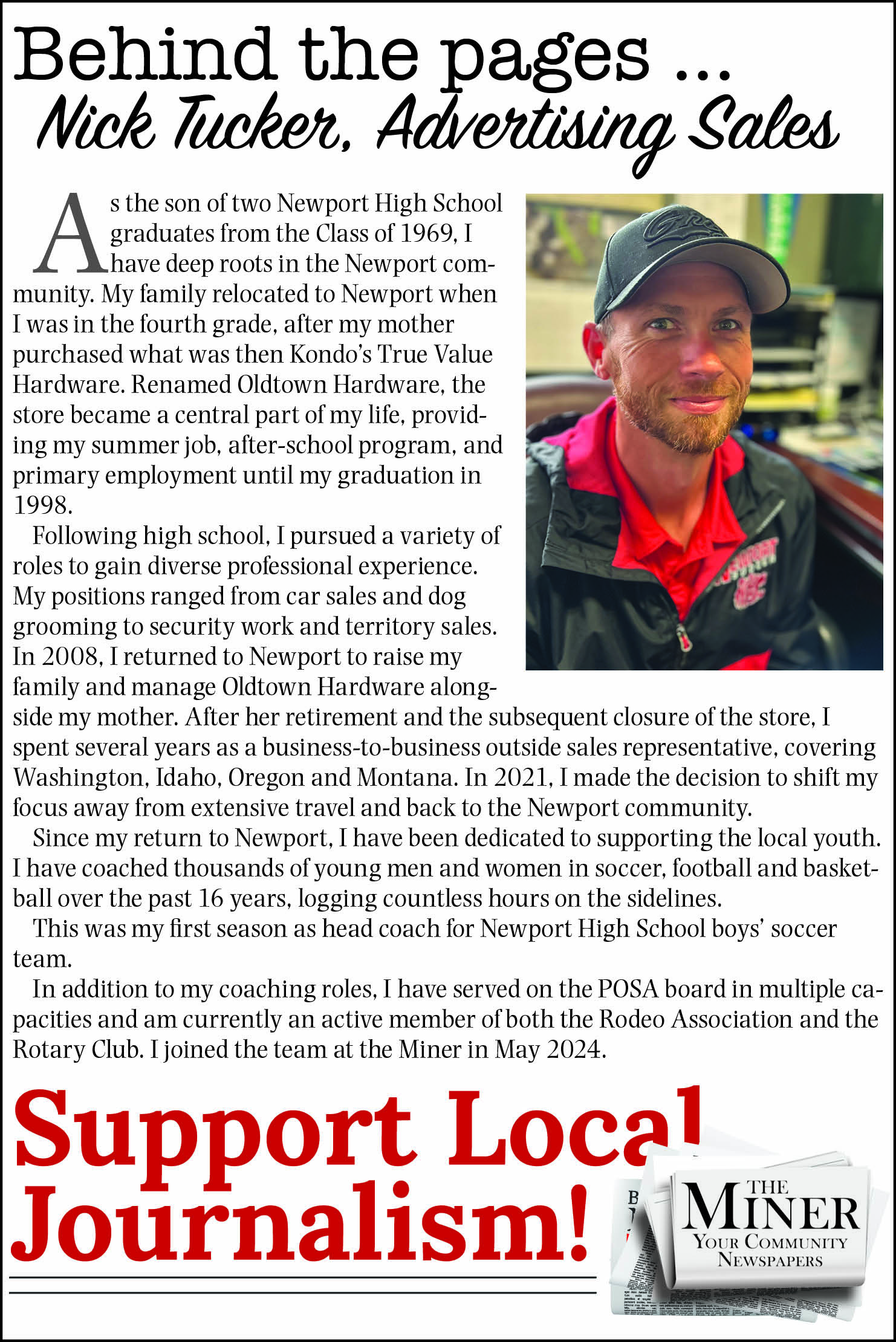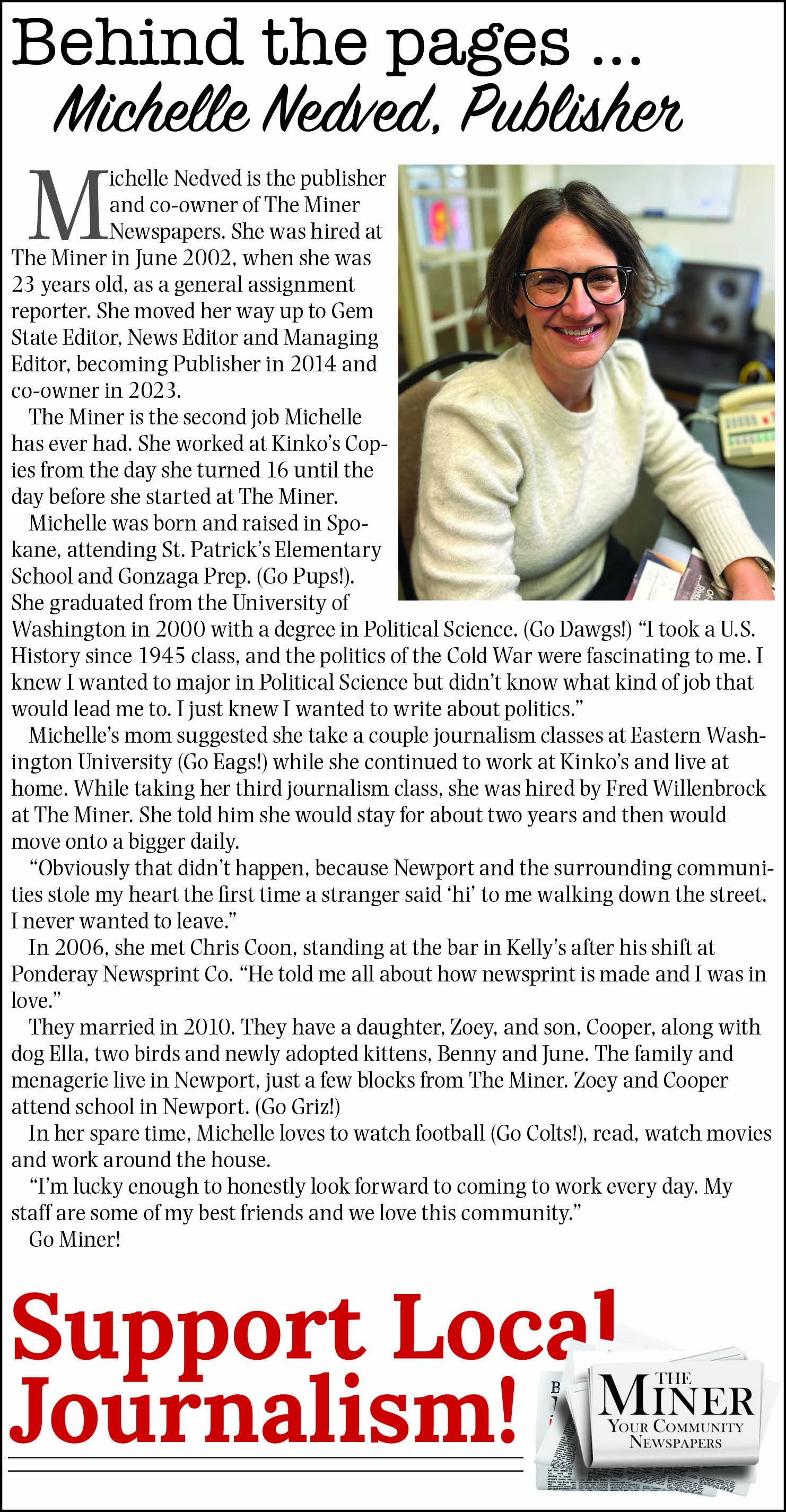District 1
John Gentle
Age: 50 Occupation: Pend Oreille County commissioner Town of residence: Newport Question: As various forms of federal aid expire and costs rise, the county is facing a struggle to balance the budget. Should the county consider some form of tax increase to have enough revenue? Increase fees for county services? How would you prioritize cuts to county services if there isn’t enough revenue to continue services at current levels?
Answer: The only thing even close to a “universal” message we get, regardless of party preference, is that the tax burden in Washington is too high. Consider that Pend Oreille County already has the lowest sales tax rate in the state at .077. (.065 of which is the state rate) This is a full $2.60 per $100 spent less than the highest in the state. The trouble is when folks move here and want Cadillac services on a Honda budget. Stretching our dollars is a bit of a specialty for most rural counties, but there do seem to be some very clear areas where people have chosen to spend more. Many of the fire district levies in recent years were passed, which indicates there are services people will pay to get at a higher level.

Question: Like many employers, the county is having a difficult time attracting and retaining staff. What can be done to make sure the county has enough workers to do county business? Pay more? Allow work from home? Something else?
Answer: Strangely enough, this isn’t universally the case.
Our vacancy rate is at what I believe to be an historic low at 4%. We are between 4%-7% now, where we were hovering around 12% when I took office.
I worked with human resources to better quantify what it was costing the taxpayer to retrain so many people and have so many new employees. The cost savings to the taxpayer to have a much more manageable vacancy rate is significant, and the service is much improved as well. There are some key positions that are suffering from a statewide shortage that are proving much tricker to solve.
Staff for dispatch, corrections, and the prosecutor’s office are in high demand throughout Washington and money alone simply is not the solution. We are well outside the box on this one, but always open to creative new solutions.
Question: After funding law enforcement, some would say maintaining county roads is the next top priority for county funding. Do you agree that is the case and if so, is road maintenance adequately funded now? Or is road funding one of many things the county has to fund with the money it has? If there aren’t enough funds for maintaining roads, what should be done?
Answer: Generally, I would agree with this sentiment, the trouble is that almost everything we do at the county is done by federal or statutory requirements0. Simply put, we don’t have the option to just make them go away. This means that what might be a low priority for many of us has become a critical need in the county. Many of us may never have occasion, or even qualify for indigent defense for example. We still must retain 3 public defenders to meet our case load standards, and the state has just significantly reduced the number of cases each attorney can accept. While we have some breathing room here, it seems likely that this will exacerbate the attorney shortage facing all counties in the state at this time. This usually means that attorney wages are going to climb, and we will feel the impact when the contract is due for negotiation.
As for roads funding, all counties are facing a fiscal cliff in transportation revenue due to the declining gas tax collection, and the uptake in electric vehicles. Gas tax revenues will take a steep dive in 2030 if the state is successful in eliminating the sale of all gasoline powered passenger vehicles. When the gas tax was instituted, cars were getting an average of 10 miles per gallon. Today vehicles can drive 5 times as far on the same gallon and many vehicles on the road use no gas at all. Combine that with the exponential rise in costs for materials and labor, and you can see that the outlook for county roads is not pretty.
Like many of you find in your own budgets, the answer is that we must both cut costs and increase revenues. We have turned a few crumbling roads back to gravel in areas where we simply cannot justify spending taxpayer dollars for just a handful of people. The county roads network must contract if the state refuses to recognize the importance of roads as critical infrastructure.
I worked with the legislative steering committee to elevate transportation funding as one of the highest priorities for the Washington State Association of Counties. We will continue to fight for counties’ fair share of transportation dollars.
.png)













